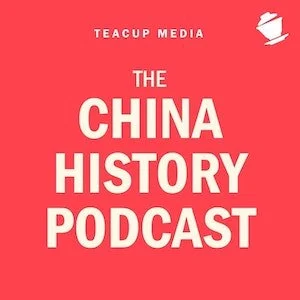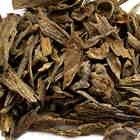Ep. 327 | The History of China-Cambodia Relations (Part 2)
In this episode, we'll focus on modern China-Cambodia Relations. The rise of the Cambodian communists (Khmer Rouge) will be highlighted, along with how China helped to facilitate their rise and keep them in power. In addition to PRC support for the Khmer Rouge, we'll also look at the aftermath of their fall in 1979 and the complicated PRC-Vietnam-Cambodia triangle. The episode concludes with a look at present-day relations and China's Belt & Road projects in Cambodia.
Listen On Your Favorite Podcast Player
Terms in Episode
| Pinyin/Term | Chinese | English/Meaning |
|---|---|---|
| Fúnán | 扶南 | The name given by Chinese cartographers, geographers and writers to an ancient Indianized state—or, rather a loose network of states centered on the Mekong Delta. Funan existed from the first to sixth century CE. |
| Zhēnlà | 真腊 | The Chinese name for the successor state of the kingdom of Funan preceding the Khmer Empire that existed from around the late sixth to the early ninth century in Indochina. Chinese contuinued to use the Zhenla name for Cambodia |
| Hồ Chí Minh | 胡志明 | 1890-1969, Vietnamese revolutionary and statesman. He served as Prime Minister of Vietnam from 1945 to 1955, and as President of Vietnam from 1945 until his death in 1969. Ideologically a Marxist–Leninist, he was the Chairman and First Secretary of the Workers' Party of Vietnam. |
| Saloth Sar (Pol Pot) | 沙洛特绍 / 波尔布特 | 1925-1998, Cambodian revolutionary and dictator, often blamed for the atrocities committed by the Khmer Rouge that he led |
| Zhōu Ēnlái | 周恩来 | 1898-1976, premier of the PRC from 1949 to 1976 |
| Dèng Xiǎopíng | 邓小平 | 1904-1997, Chinese revolutionary leader, military commander and statesman who served as the paramount leader of the PRC from December 1978 to November 1989 |
| Pham Van Dong | 范文同 | 1906-2000, Vietnamese politician who served as Prime Minister of North Vietnam from 1955 to 1976. He later served as Prime Minister of Vietnam following reunification of North and South Vietnam from 1976 until he retired in 1987 under the rule of Lê Duẩn and Nguyễn Văn Linh. He was considered one of Hồ Chí Minh's closest lieutenants |
| Norodom Sihanouk | 诺罗敦·西哈努克 | 1922-2012, a major figure in 20th century Cambodian history |
| Sangkum | 人民社会同盟 | Usually translated as Popular (or People's) Socialist Community and commonly known simply as the Sangkum. It was a political organisation set up in March 1955 by Prince Norodom Sihanouk. Though it described itself as a 'movement' rather than a political party (members had to abjure membership of any political group),the Sangkum retained control of the government of Cambodia throughout the first administration of Sihanouk, from 1955 to 1970. Central to the Sangkum ideology were nationalism, conservatism, preserving the monarchy, and a conservative interpretation of Buddhism |
| Chén Bódá | 陈伯达 | 1904-1989, was a Chinese Communist journalist, professor and political theorist who rose to power as the chief interpreter of Maoism (or "Mao Zedong Thought") in the first 20 years of the People's Republic of China. Chen became a close associate of Mao Zedong in Yan'an, during the late 1930s, drafting speeches and theoretical essays and directing propaganda. |
| Zhāng Chūnqiáo | 张春桥 | 1917-2005, was a prominent Chinese political theorist, writer, and politician. He came to the national spotlight during the late stages of the Cultural Revolution, and was a member of the Gang of Four |
| Kāng Shēng | 康生 | 1898-1975, was a Chinese Communist Party official, best known for having overseen the work of the CCP's internal security and intelligence apparatus during the early 1940s and again at the height of the Cultural Revolution |
| Lon Nol | 朗诺 | Cambodian politician and general who served as Prime Minister of Cambodia twice (1966–67; 1969–71),as well as serving repeatedly as defence minister and provincial governor. As a nationalist and conservative, he led the military coup of 1970 against Prince Norodom Sihanouk, abolished the monarchy, and established the short-lived Khmer Republic. |
| Bandung Conference | 萬隆會議 | The first large-scale Asian–African Conference, also known as the Bandung Conference. It was a meeting of Asian and African states, most of which were newly independent, which took place on 18–24 April 1955 in Bandung, West Java, Indonesia. |
| Sisowath Sirik Matak ស៊ីសុវត្ថិ សិរិមតៈ | 西索瓦·施里玛达 | 1914-1975, Cambodian politician and member of the Cambodian royal family, under the House of Sisowath. Sirik Matak was mainly notable for his involvement in Cambodian politics, particularly for his involvement in the 1970 change in power against his cousin, then Prince Norodom Sihanouk, and for his subsequent establishment, along with Lon Nol, of the Khmer Republic |
| Sihanoukville | 西哈努克市 | Also known as Kampong Som, Sihonoukville is a coastal city in Cambodia and the capital of Preah Sihanouk Province, at the tip of an elevated peninsula in the country's south-west on the Gulf of Thailand. |
| Ieng Sary | 英萨利 | 1925-2013, was the co-founder and senior member of the Khmer Rouge and one of the main architects of the Cambodian Genocide. He was a member of the Central Committee of the Communist Party of Kampuchea led by Pol Pot and served in the 1975–79 government of Democratic Kampuchea as foreign minister and deputy prime minister. He was known as "Brother Number Three" as he was third in command after Pol Pot and Nuon Chea |
| Lín Biāo Incident | 林彪事件 | On September 13 1971, Lin Biao and wife Ye Qun, allegedly after attempting to assassinate Mao, flew out of a Heibvei airport attempting to defect to the Soviet Union |
| Bác Hồ | 和叔叔 | Uncle Ho, one of the many names Ho Chi Minh was known by |
| Champa | 占城 | A collection of independent Cham polities that extended across the coast of what is contemporary present-day central and southern Vietnam from approximately the 2nd century AD until 1832 |
| Kim Il Sung | 金日成 | 1912-1994, was a Korean politician and the founder of North Korea, which he ruled from the country's establishment in 1948 until his death in 1994 after which he was declared eternal president |
| Dèng Yǐngchāo | 邓颖超 | 1904-1992, was the Chairwoman of the Chinese People's Political Consultative Conference from 1983 to 1988, a member of the Chinese Communist Party, and the wife of the first Chinese Premier, Zhou Enlai |
| Khieu Samphan ខៀវ សំផន | 乔森潘 | Born 1931, Cambodian former communist politician and economist who was the chairman of the state presidium of Democratic Kampuchea from 1976-1979. As such, he served as Cambodia's head of state and was one of the most powerful officials in the Khmer Rouge movement. Still living and still in prison as of May 2023 |
| Nuon Chea. នួន ជា | 农谢 | 1926-2019, Cambodian communist politician and revolutionary who was the chief ideologist of the Khmer Rouge. He also briefly served as acting Prime Minister of Democratic Kampuchea. He was commonly known as "Brother Number Two" as he was second-in-command to Khmer Rouge leader Pol Pot |
| Hun Sen. ហ៊ុន សែន | 洪森 | Born 1952, Cambodian politician and former military commander who has been the prime minister of Cambodia since 1998. He is the longest-serving head of government of Cambodia, and one of the longest-serving leaders in the world. He is also the president of the Cambodian People's Party (CPP) and a member of the National Assembly for Kandal. |
| Heng Samrin. ហេង សំរិន | 韓桑林 | Born 1934, Cambodian politician who serves as the President of the National Assembly of Cambodia. Between 1979 and 1992, he was the de facto leader of the Hanoi-backed People's Republic of Kampuchea (1979–1989) and State of Cambodia (1989–1992) and General Secretary of the Kampuchean People's Revolutionary Party from 1981 to 1991. |
| Chan Sy ចាន់ ស៊ី | 姜西 | 1932-1984, Cambodian politician who served as the Prime Minister of the People's Republic of Kampuchea from 1982 until his death in 1984. His death opened the door for Hun Sen to taske over as prime minister |
| King Norodom Ranariddh នរោត្ដម រណឫទ្ធិ | 諾羅敦·拉那烈 | 1944-2021, Cambodian prince, politician and law academic. He was the second son of King Norodom Sihanouk. Ranariddh was the president of FUNCINPEC, a Cambodian royalist party. He was also the First Prime Minister of Cambodia following the restoration of the monarchy, serving between 1993 and 1997, and subsequently as the President of the National Assembly between 1998 and 2006. |
| Teochew | 潮州 | The people who trace their ancestry back to the Chaoshan 潮汕 region of eastern Guangdong |
| Wēn Jiābǎo | 温家宝 | Born September 15,1942, Wen is a Chinese retired politician who served as the premier of China from 2003 to 2013. In his capacity as head of government, Wen was regarded as the leading figure behind China's economic policy. |
| Cantonese | 广东人 | People who hail from around the city of Guangzhou. Their language and culture is also called Cantonese |
| Hokkien | 福建人 | In the Minnan dialect, the people, language and culture of southern Fujian |
| Zhèng Hé | 郑和 | Celebrated Muslim eunuch admiral whose made seven voyages to Southeast Asia, South Asia, and the Middle East between 1405 and 1433 |
| Hǎinán | 海南 | Island province located off the coast of Guangdong in the South China Sea |
| Kampot ក្រុងកំពត | 贡布市 | A coastal city in southern Cambodia and the capital of Kampot Province |
| Héxiān / Hà Tiên | 河僊鎮 | A settlement on Vietnam's southernmost coast located on the boirder withg Cambodia. It was once a settlement populated by Chinese escaping from the Manchus after 1644 |
| Hakka | 客家人 | A Han Chinese subgroup whose ancestral homes are chiefly in the Hakka-speaking provincial areas of Guangdong, Fujian, Jiangxi, Guangxi, Sichuan, Hunan, Zhejiang, Hainan, Guizhou in China, as well as in parts of Taiwan. Unlike other Han Chinese subgroups, the Hakkas are not named after a geographical region in China. The word Hakka or "guest families" is Cantonese in origin and originally refers to the Northern Chinese refugees fleeing social unrest, upheaval and invasions in northern parts of China who migrated to the south. |
| Siem Reap សៀមរាប | 暹粒 | the second-largest city of Cambodia, as well as the capital and largest city of Siem Reap Province in northwestern Cambodia. Also home to the famous Angkor Wat temple complex |

















his all took place in the final moments of the Warlord Era, right after the Central Plains War. This act perpetrated by warlord Sun Dianying 孙殿英 epitomized the venality of these men.